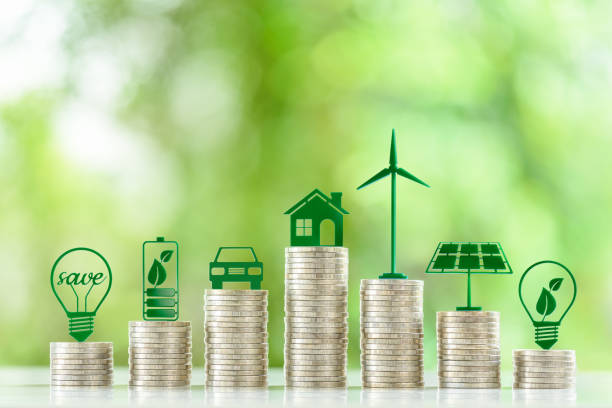Green Tech Revolution: Sustainable Solutions for a Better Tomorrow
In the face of global challenges such as climate change, resource depletion, and environmental degradation, the imperative for sustainable practices has given rise to a “Green Tech Revolution.” This revolution is characterized by the development and implementation of innovative technologies that aim to address environmental concerns while fostering economic growth. As we navigate the complexities of a changing planet, the integration of green technologies is emerging as a beacon of hope, offering sustainable solutions for a better and more environmentally conscious tomorrow.
Harnessing Renewable Energy Sources
Central to the Green Tech Revolution is the widespread adoption of renewable energy sources. Solar, wind, hydro, and geothermal power are increasingly becoming mainstream alternatives to traditional fossil fuels. Solar panels, for instance, have undergone significant advancements, becoming more efficient, cost-effective, and aesthetically versatile. Similarly, wind turbines are now capable of harnessing wind energy more efficiently, contributing to the reduction of greenhouse gas emissions.
One of the breakthroughs in renewable energy technology is the development of energy storage systems, such as advanced batteries. These systems enable the efficient storage of excess energy generated during peak times, addressing the intermittent nature of renewable sources. The combination of renewable energy generation and storage technologies is transforming the energy landscape, providing a sustainable and reliable alternative to conventional power sources.
Smart Grids and Energy Efficiency
Green technologies extend beyond energy generation to the optimization of energy distribution and consumption. Smart grids leverage advanced communication and control systems to enhance the efficiency and reliability of power delivery. These intelligent grids can detect and respond to changes in energy demand, integrate renewable energy sources seamlessly, and minimize transmission losses.
Energy efficiency is a cornerstone of the Green Tech Revolution. Technologies like smart meters, energy-efficient appliances, and building automation systems enable individuals and businesses to monitor and reduce their energy consumption. The integration of Internet of Things (IoT) devices and sensors in smart cities further contributes to optimizing energy use, reducing waste, and enhancing overall sustainability.
Sustainable Transportation
Transportation is a major contributor to both carbon emissions and air pollution. The Green Tech Revolution is reshaping the transportation sector with a focus on sustainability. Electric vehicles (EVs) powered by renewable energy sources are gaining popularity, offering a cleaner and more energy-efficient alternative to traditional gasoline-powered vehicles. The development of high-capacity batteries and improvements in charging infrastructure are overcoming barriers to the widespread adoption of electric vehicles.
Furthermore, advancements in public transportation systems, such as electrified trains and buses, contribute to reducing emissions in urban areas. Sustainable transportation solutions also encompass innovations in alternative fuels, such as hydrogen fuel cells and biofuels, providing greener options for various modes of transportation.
Circular Economy and Waste Management
The concept of a circular economy, which emphasizes the reduction, reuse, and recycling of materials, is a pivotal aspect of the Green Tech Revolution. Advanced recycling technologies are enabling the recovery of valuable resources from waste materials, mitigating the environmental impact of landfills and reducing the need for virgin raw materials.
Waste-to-energy technologies are also gaining prominence, converting organic waste into biogas or electricity. These innovative solutions not only address the challenge of waste management but also contribute to the generation of renewable energy, creating a symbiotic relationship between waste reduction and sustainable energy production.
Precision Agriculture and Sustainable Food Production
Agriculture is undergoing a transformation with the infusion of green technologies. Precision agriculture leverages sensors, drones, and data analytics to optimize farming practices. This includes precision irrigation, targeted pesticide application, and data-driven crop management, leading to increased efficiency, reduced environmental impact, and enhanced yields.
Vertical farming and hydroponics are innovative approaches to sustainable food production. By growing crops in controlled indoor environments, these methods minimize the need for arable land, reduce water consumption, and eliminate the use of harmful pesticides. The integration of technology in agriculture not only addresses the challenges of food security but also contributes to environmental conservation.
Biodiversity Conservation and Environmental Monitoring
Green technologies play a crucial role in biodiversity conservation and environmental monitoring. Remote sensing technologies, satellite imagery, and data analytics enable scientists and conservationists to monitor changes in ecosystems, track deforestation, and assess the impact of climate change on biodiversity.
Innovations such as sensor networks and animal tracking devices aid in wildlife conservation efforts. These technologies provide valuable insights into animal behavior, migration patterns, and habitat use, empowering conservationists to make informed decisions for the protection of endangered species and ecosystems.
Challenges and Considerations
While the Green Tech Revolution holds great promise, it is not without challenges. The initial costs of adopting green technologies, such as renewable energy infrastructure or electric vehicles, can be a barrier for some individuals and businesses. Governments and industries need to collaborate to provide incentives, subsidies, and policies that encourage the transition to sustainable practices.
The integration of green technologies also raises questions about electronic waste (e-waste) management. As the lifespan of electronic devices shortens due to rapid technological advancements, there is a growing need for responsible e-waste recycling and disposal practices to prevent environmental harm.
Moreover, ensuring equitable access to green technologies is essential to avoid exacerbating existing social and economic disparities. Efforts should be made to bridge the digital divide and ensure that the benefits of the Green Tech Revolution reach marginalized communities and developing regions.
The Path Forward
The Green Tech Revolution represents a pivotal moment in human history, where technological innovation converges with environmental stewardship. Embracing sustainable solutions is not just a choice but a necessity for the well-being of the planet and future generations. Governments, businesses, and individuals all have roles to play in driving the adoption and advancement of green technologies.
Investments in research and development, coupled with supportive policies, will accelerate the pace of innovation in the green technology sector. Collaboration between industries, governments, and academia is crucial for creating a conducive environment for sustainable practices and technologies to thrive.
As the Green Tech Revolution continues to unfold, it is shaping a future where economic prosperity and environmental sustainability are not mutually exclusive. The collective effort to embrace and advance green technologies is not only a response to the challenges of today but an investment in a better and more sustainable tomorrow. The journey towards a greener, more sustainable world is a shared responsibility, and the innovations of today are the building blocks of a resilient and harmonious future.







[…] and Explainability: The inherent complexity of some AI algorithms, particularly in deep learning, raises concerns about the lack of […]